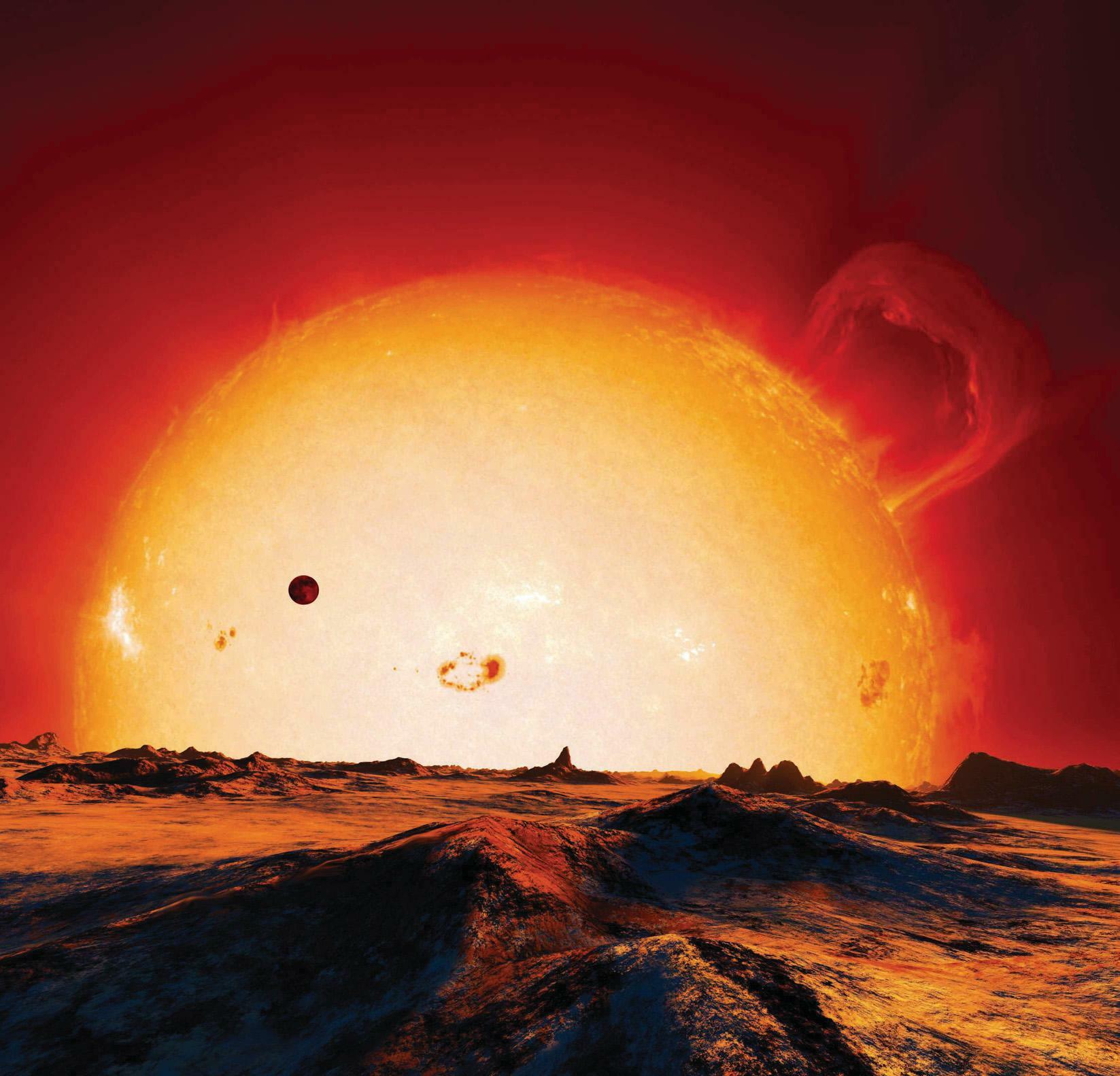Poging GOUD - Vrij
HOW THE UNIVERSE WILL END
BBC Science Focus
|June 2024
A colossal supercollider now in the early stages of development may one day help us predict the ultimate fate of the Universe. With it, scientists will be trying to find a hidden instability built into the fabric of existence... an instability that could destroy everything

Most cultures have stories and myths detailing the end of days, from the eventual fate of humans to what will happen to our world and any other realms inhabited by their respective deities. These legends often promise the arrival of a reorganised existence after the cataclysm, a paradise.
But what does modern science have to say about the end of days or to put it in more scientific terms, the end of the Universe?
We know that Earth, if it's not destroyed by us or an errant asteroid first, will likely be incinerated when the Sun expands into a red giant. Luckily, that's not likely to happen for at least another five billion years.
As for the Universe as a whole, do we have any understanding of when and how it will come to an end?
We can look to modern cosmology for some intriguing possible answers. And with the European Organisation for Nuclear Research, aka CERN, currently developing the Future Circular Collider (FCC) a gargantuan 'atom smasher' almost three times bigger than the Large Hadron Collider (LHC) we're one step closer to knowing which one is likely to be right.
FREEZE, CRUNCH OR RIP
In exploring the various theories, it all comes down to the balance between the expansion of the Universe and the pull of gravity. In one scenario, gravity may not be strong enough to stop the Universe from expanding, meaning it'll continue to do so forever.
As all the energy eventually becomes uniformly distributed, the Universe will become darker and colder. Even black holes will evaporate as the Universe becomes a near-vacuum of subatomic particles and photons, an endless and timeless void where nothing ever happens. This is called the 'Big Freeze' (or, conversely, 'Heat Death').
Dit verhaal komt uit de June 2024-editie van BBC Science Focus.
Abonneer u op Magzter GOLD voor toegang tot duizenden zorgvuldig samengestelde premiumverhalen en meer dan 9000 tijdschriften en kranten.
Bent u al abonnee? Aanmelden
MEER VERHALEN VAN BBC Science Focus

BBC Science Focus
World's biggest cobweb is home to 100,000 spiders
Spiders don't normally create such large colonies, so there's no need to worry about finding one in your basement
1 min
February 2026

BBC Science Focus
A dementia vaccine could be gamechanging – and available already
Getting vaccinated against shingles could protect you from getting dementia, or slow the progression of the disease
1 mins
February 2026

BBC Science Focus
DATA IN SPACE
An unusual spacecraft reached orbit in November 2025, one that might herald the dawn of a new era.
7 mins
February 2026

BBC Science Focus
Climate change is already shrinking your salary
No matter where you live, a new study has found warmer temperatures are picking your pocket
4 mins
February 2026

BBC Science Focus
A MENTAL HEALTH GLOW-UP
Forget fine lines. Could Botox give you an unexpected mental health tweakment?
3 mins
February 2026
BBC Science Focus
Most people with high cholesterol gene don't know they have it
Standard testing struggles to detect the condition
1 mins
February 2026

BBC Science Focus
HOW CAN I BOOST MY IQ?
If you're serious about getting smarter, it's time to ditch the brain-training apps
4 mins
February 2026

BBC Science Focus
Humans are absolutely terrible at reading dogs' emotions
Think you can tell how our furry friends are feeling? Think again
1 mins
February 2026

BBC Science Focus
HOW TO TEACH AI RIGHT FROM WRONG
If we want to get good responses from AI, we may need to see what it does when we ask it to be evil
3 mins
February 2026

BBC Science Focus
What Australia's social media ban could really mean for under-16s
Many people think social media is bad for our kids. Australia is trying to prove it
5 mins
February 2026
Listen
Translate
Change font size
